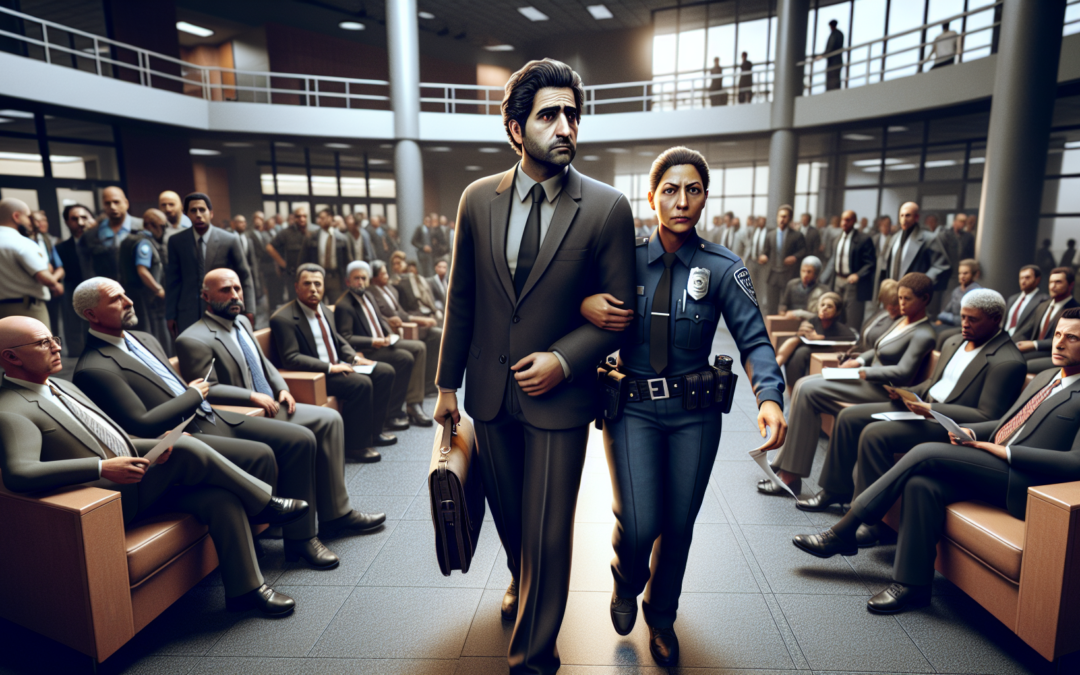Standing Firm Under the Scrutinizing Lens
In the age of digital omnipresence, the role of law enforcement has evolved into a public spectacle where every move is under relentless scrutiny. Police officers operate in a shadow of pervasive skepticism cast by cell phones, body cams, and, increasingly, the so-called “auditors” eager to expose perceived violations of rights. These auditors seek out confrontations with police to capture moments they hope will discredit those sworn to uphold the law, often lacking the context or understanding of protocol. The recent confrontation between auditor James Freeman and police embodies the growing chasm between public perception and the reality faced by law enforcement officers.
The Unseen Strain on Officers
Policing is more than a career—it’s a commitment to protecting communities at all costs, even personal ones. Officers are asked to carry a significant emotional and psychological burden. Each 911 call, traffic stop, and patrolling shift is wrapped in layers of potential danger, uncertainty, and split-second decision-making. This high-stakes environment requires not only skills and training but also unwavering courage and mental resilience. Yet, the general public often overlooks the profound sacrifices officers make daily.
Consider standing in an officer’s shoes on a routine day, each moment teetering on the edge of unpredictability. They confront a juxtaposition of honor and animosity, receiving accolades one moment and condemnation the next. Any slip, misinterpretation, or aggressive rebuttal captured on video can spiral into a viral scandal, often divorced from the preceding context that might justify or elucidate their actions.
The Freeman Encounter: A Snapshot of Growing Distrust
James Freeman thrives in an environment where each encounter is a fortuitous opportunity to cross an imaginary line drawn between justice and perceived oppression. His recent engagement with officers, documented in painstaking detail, offers a harrowing glimpse into the contentious interactions that have become all too common.
Freeman’s strategy revolves around instigating conflicts by questioning officers’ authority and provoking reactions that, when isolated from their context, appear incriminatory. This incident was no exception. Freeman entered the police lobby with his camera already recording, creating a scenario charged with preemptive antagonism. His demeanor was confrontational and unapologetically aimed at sparking a reaction.
The officers, trained to de-escalate to avoid further antagonism while safeguarding their environment, were put in an unenviable position. Their every move, word, and gesture was under Freeman’s lens, waiting to be dissected by an audience eager for controversy. As they navigated this tense interaction, their composure was a testament to their training and dedication.
Balancing Compliance and Compassion
It is easy to cast officers in a villainous light when snippets of interactions are broadcast without the minute-by-minute, layered reality of their lives. However, beneath the badge lie husbands, wives, parents, and neighbors molded by moments of crisis and fleeting triumphs. Engaging with someone like Freeman involves walking a tightrope strung between law enforcement’s integrity and the pressing need for public relations tact.
Personifying an officer’s dilemma—should they rigorously adhere to protocol and risk emotional distance, or explore compassionate leniency and risk seeming unjust? The balance often shifts not by choice but by necessity, catalyzing debates that castigation cannot resolve. The confrontation with Freeman encapsulated this struggle: fidelity to the law or empathetic flexibility, every day weighed and re-weighed with the gravity of unpredictable consequences.
Outcome and Public Perception
The end result of such confrontations seldom births a clear victor; instead, it breeds resentment, misunderstanding, and media-spun narratives. Freeman’s footage likely amplified his agenda, while the officers’ adherence to duty and procedure faced trial by public opinion, irrespective of legal validation.
As the footage will reveal, the professional conduct maintained by the officers under Freeman’s glaring eye should serve as a reminder: their challenge daily is not only facing crime but reconciling with relentless judgment.
A Call for Unified Understanding
From this altercation burgeons a critical demand for society to transcend the myopic lens of sensational content. Instead, it’s paramount to foster genuine understanding, engage in dialogue, and embrace reconciliation by looking beyond fragmented social media narratives to the comprehensive truths stylized by law enforcement realities.
The confrontation highlights a stark reality: when we charge auditors like Freeman to the frontlines of our perceptions of justice, we distort our understanding of complex and multifaceted societal roles. Let us be cautious of the stories we endorse and introspect on the bounded titans who brave this job with valor, integrity, and resoluteness.
Tune in to explore more on The John Ligato Show or watch the riveting confrontation transformation on YouTube and join our community on Facebook to delve deeper into these emboldened narratives. Let’s stand together and uplift those who stand vigil for us.

Recent Comments